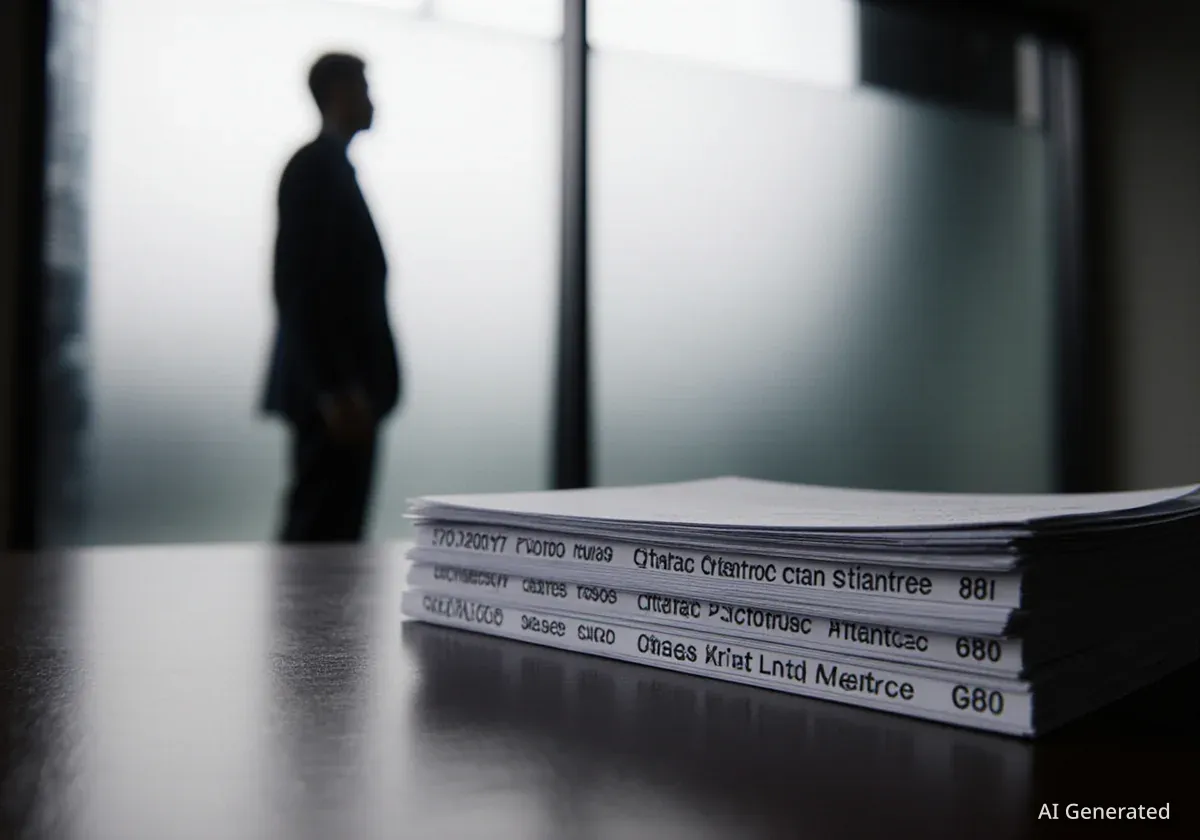Federal agents have searched the California offices of a real estate investment firm connected to approximately $160 million in defaulted loans from Zions Bank and Western Alliance. The search, conducted by the FBI last month, is part of an ongoing criminal investigation, according to legal documents related to the case.
The firm, Continuum Analytics, is an affiliate of Cantor Group funds, which the two regional banks have sued to recover the significant sums. The federal scrutiny adds a new layer of complexity to a situation already involving civil litigation and allegations of fraud.
Key Takeaways
- The FBI searched the Newport Beach offices of Continuum Analytics on September 11 as part of a criminal investigation.
- A grand jury has been convened, indicating prosecutors are gathering further evidence in the matter.
- The firm is linked to Cantor Group funds, which defaulted on about $160 million in loans from Zions Bank and Western Alliance.
- Both banks have filed lawsuits alleging misrepresentation and fraud to recover the outstanding loan amounts.
Federal Probe into Real Estate Firm
The FBI executed a search warrant at the Newport Beach, California, offices of Continuum Analytics on September 11. This action was confirmed in legal correspondence connected to a separate civil dispute involving the company.
Details emerged from a letter dated September 12 from the law firm Paul Hastings, which mentioned the federal search. Another letter, from the law firm Allen Matkins, disclosed on October 2 that its clients linked to Continuum were subjects of search warrants and that a grand jury had been convened.
The convening of a grand jury is a significant step in a criminal investigation, typically used by prosecutors to gather more evidence and determine if criminal charges are warranted. The specific focus of the investigation and the individuals or potential misconduct being examined have not been publicly disclosed.
What is a Grand Jury?
A grand jury is a group of citizens empowered by law to conduct legal proceedings, investigate potential criminal conduct, and determine whether criminal charges should be brought. Unlike a trial jury, it does not decide guilt or innocence but rather whether there is probable cause to believe a crime was committed.
Spokespeople for the FBI and the Department of Justice have not commented on the ongoing investigation. It is important to note that criminal investigations do not always result in charges being filed.
Banks Seek to Recover $160 Million
The federal investigation coincides with aggressive legal action from two major regional banks. Zions Bank and Western Alliance have publicly disclosed that Cantor Group funds, affiliated with Continuum, defaulted on loans totaling nearly $160 million.
On October 15, Zions Bank filed a lawsuit to recover more than $60 million in soured loans. The suit names Cantor Group fund guarantors Andrew Stupin and Gerald Marcil, among others, as defendants. The bank alleges that key information was either misrepresented or not disclosed, which constitutes a breach of the loan terms.
A day later, Western Alliance revealed it had filed a similar lawsuit in August, seeking to recover nearly $100 million from a different Cantor fund and the same two guarantors. Western Alliance’s suit goes further, explicitly alleging fraud on the part of the Cantor fund.
Loan Default Breakdown
- Western Alliance: Nearly $100 million
- Zions Bank: More than $60 million
- Total at Risk: Approximately $160 million
Spokespeople for Zions and Western Alliance did not respond to requests for comment on the matter. The defaults have caused concern in financial markets, which are sensitive to signs of weakening corporate credit.
A Complicated Corporate Structure
Public records and legal filings paint a picture of a complex network of entities and investors centered around Continuum Analytics. The firm specializes in acquiring and managing distressed real estate assets for investor groups.
According to a February arbitration ruling, Andrew Stupin and Gerald Marcil are the largest investors in Continuum. The same ruling found that Cantor Group, the entity named in the bank lawsuits, “consists solely” of Deba Shyam, the legal owner of Continuum, and operates from the same offices.
An attorney representing Cantor Group, Stupin, and Marcil stated that the firm upheld all its contractual obligations and was transparent with its lenders. The attorney, Brandon Tran, added that the loans were audited and independently reviewed multiple times.
"The pair are passive investors in Cantor and held no operational roles," said Tran, referring to Stupin and Marcil.
In a separate statement, Marcil denied any wrongdoing and claimed he was a victim. In its own legal filings, Cantor Group has disputed the claim that the Western Alliance loan is in default.
The legal battles are multifaceted. The letters revealing the FBI search are part of a complex real estate dispute where the law firm Paul Hastings is involved. A lawyer for the firm noted they were “working to unravel multiple levels of alleged fraud,” but did not elaborate further.





